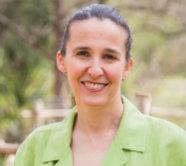Conscious Collaboration: The New Competitive Advantage for Nonprofits

As originally published on Philanthropy News Digest
Whole Kids Foundation is a nonprofit on a mission to support schools and inspire families to improve their children's nutrition and wellness. We were established by Whole Foods Market in 2011 and operate in the U.S., UK and Canada, supporting more than ten thousand schools and reaching over five million kids. Our staff of six full-time team members is responsible for raising and investing $5 million annually. With such a small team, collaboration plays a critical role in our success.
It's unrealistic to believe that any one organization can solve today’s major societal issues alone, and so from the outset we have viewed the work of improving nutrition for children as a kind of relay. As such, it's imperative that we focus on our leg of the race — the work we are uniquely qualified and equipped to do. To achieve maximum impact, however, it's also critical for us to get to know and build relationships with organizations that are running other legs of the race. And as a leader in our field, it's important that we help other funders think about the quality of collaborations as an indicator of effectiveness.
From our roots in "conscious capitalism," a term coined by Whole Foods Market founder John Mackey to express the generative spirit of business and its capacity to create positive change in the world, we have developed an approach I call "conscious collaboration,” which is based on the idea that the tenets of conscious capitalism are as effective and powerful when implemented by nonprofit organizations.

